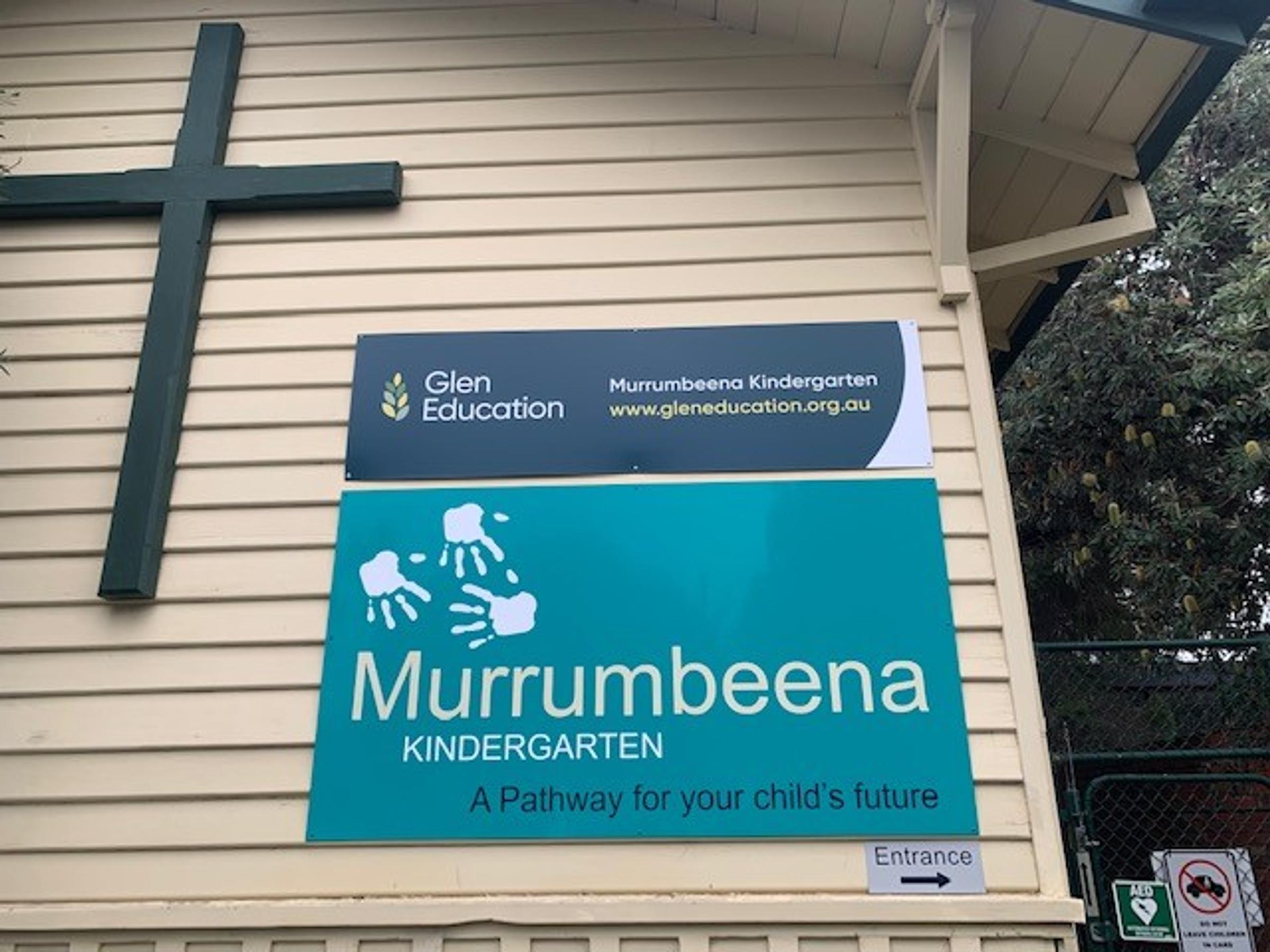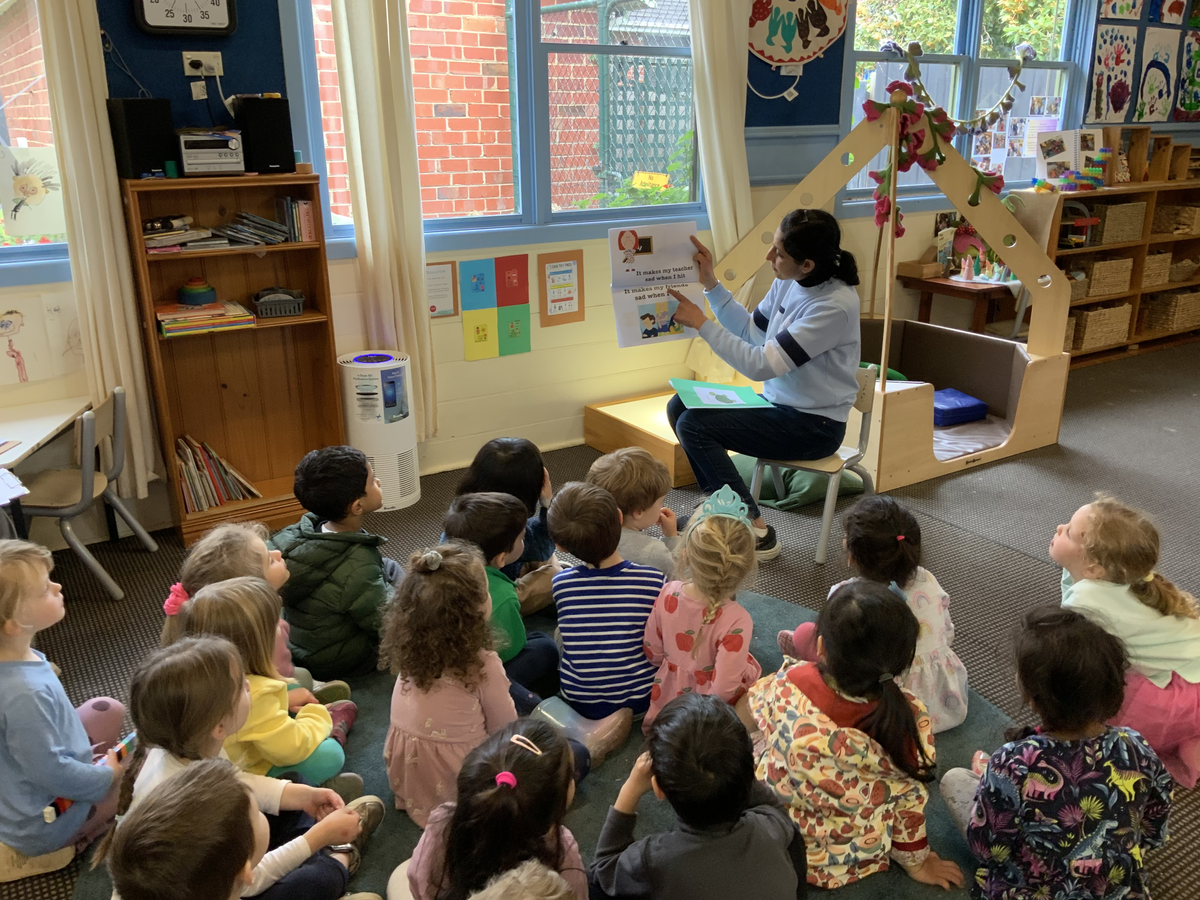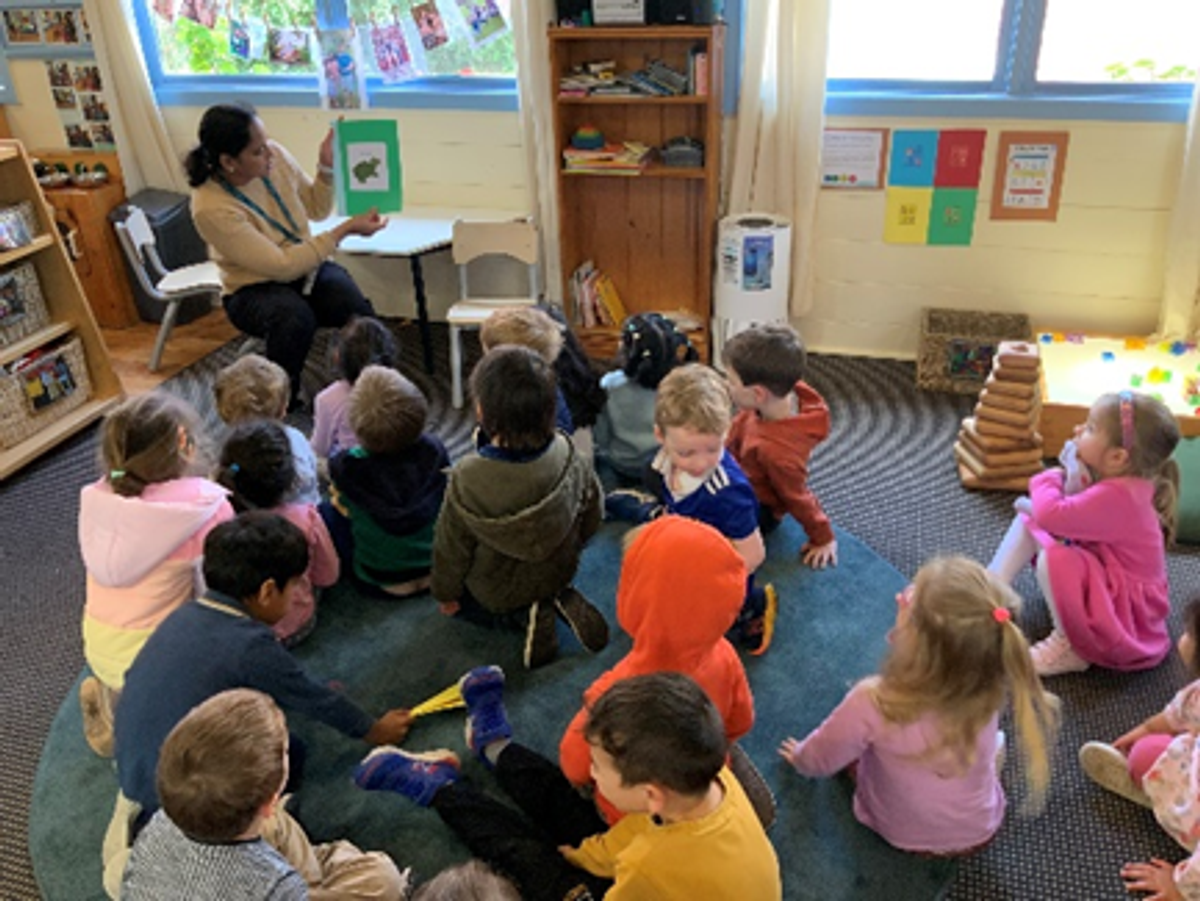Glen Education Murrumbeena

Co-constructing Learning
Glen Murrumbeena Kindergarten Educators
Quality Area 1: Educational program and practice
Children are undoubtedly the centre of everything we do at kindergarten, and our program and practice are adjusted constantly to reflect their needs, interests, and learning. Through critical reflection, we strongly believe that a flexible routine during the day supports children in increasing their independence and sense of agency.
As educators, it is very important for us to be responsive to children’s individual rhythms and change the routine, so children’s needs are met. Therefore, our meals are progressive and group time is flexible. At Glen Murrumbeena, we usually aim for a morning mat-chat and a get-together before lunch; however, those are not compulsory but depend on children’s needs each day. Some days, we have a chat in the morning about a special activity or celebration taking place on that day, discuss classroom’s expectations or share with each other about our weekends. On some other days, we would like to keep it short by saying good morning and doing the Acknowledgement of Country, and children then decide for themselves if they would like to go back to play or to start their morning tea. Similarly, our get-together before lunch can vary from day to day, and it can be educator-led, child-led, or both. We appreciate children’s voices on what they would like to do, either reading books, singing songs, dancing, watching educational videos, or discussing a topic that sparks their curiosity and interest.
- Sammi Vu, Early Childhood Teacher
Quality Area 2: Children’s health and safety
At Glen Murrumbeena Kindergarten we recognise the importance of physical activity, promoting many opportunities for all children to engage in a variety of experiences throughout all session. Obstacle courses are set up to provide physical challenges on a variety of skill levels, helping gross motor development as well as critical thinking to promote children’s ability to take risks and solve problems. Many open-ended resources and equipment are provided such as balls, hoops, stilts, and hobby horses for children to use in a variety of ways, whilst also enhancing their physical wellbeing.
At Glen Murrumbeena we involve children in the daily sun protection procedures, using this routine as a teachable moment. We review the UV rating and discuss with the children about the sun protection procedures needed for the day. Applying sunscreen is an opportunity for children to increase their self- care skills, educators encourage and support children to apply when needed.
Well-being and comfort experiences are promoted throughout the kindergarten. After lunch children are encouraged to relax or join the mindful time where we practice breathing techniques and use playdough as a tactile experience to focus on what we are doing now. This supports children’s sense of wellbeing, encourages mindfulness, and promotes resilience.
- Vibha Jain, Early Childhood Teacher
Quality Area 6: Collaborative partnerships with families and communities
At Glen Murrumbeena kindergarten, we value partnerships with our families, we strive to develop and maintain positive relationships with effective communication. We believe that family involvement is essential in our service, we also believe that families have the right to choose the level of involvement that is comfortable and viable for their family.
This term we have been joined by some new children, we have been engaging collaboratively and respectfully with the families from their enrolment and orientation to learn about their expertise, culture, values and beliefs and priorities for their child’s learning and wellbeing. We take steps to support the children and families in developing their sense of belonging. We explore opportunities to build trust with the families and support them in making contributions to the educational program. As we set up a multi-cultural wall to have a visual representation of where our children and families come from. For families who have been overseas on holidays, we encourage them to share some beautiful holiday pictures with us. Therefore, we asked the children to do a show and tell at group time sharing their wonderful experience with their friends and teachers, then we added those pictures onto our multi-cultural wall, helping children learn about cultures and better understand and appreciate the differences among individuals.
- Kayla Yu, Early Childhood Educator
Quality Area 5: Relationships with children
Learning to self-regulate is a key milestone in child development, whose foundations are laid in the earliest years of life. Learning to regulate our emotions is a complex process, it relies on so many other skills like attention, planning, cognitive development, and language development. Children develop those skills at different times. Their ability to manage negative feelings depends on their natural temperament, the environment they grow up in and physical factors, like how tired or hungry they are. But parents, educators, and other carers all play a critical role in helping children learn to manage their feelings.
At Glen Murrumbeena Kindergarten, we noticed that some children were having difficulty managing their emotions. To help them manage their emotions, we have introduced social stories. The pictures in the social story give children a visual representation that can improve their understanding of the language we use when explaining a skill or social situation. We have started reading social stories to children to teach them desired social behaviours in specific situations, such as asking for help, recognising feelings like sad, angry, or scared, and keeping their hands, bodies, and feet to themselves.
After we read the story, we always discuss the key concepts with the children to make sure they understand. Children showed interest in listening to the stories, getting involved in the discussions, and sharing their thoughts. We made the storybooks available to the children so they could read them whenever they’d like to. We will continue to observe how often they use the skills learnt through the social stories to manage their emotions or a specific social situation, and we will support them.
- Venkata Aduri, Early Childhood Educator
Quality Area 1: Educational program and practice
Books are a wonderful way of capturing children’s interest and engaging them in thinking about making connections between their prior knowledge and new information. An interesting book can be enjoyed by educators and children alike, it is educators role to capture that enthusiasm and extend on the learning in the moment.
On many occasions, I have read books which focus on zoo animals. I have observed that we have a small group of children who love to play with the animals in the sand tray. They use their creativity to design a habitat for the animals they are playing with. They enjoy sharing their knowledge with me and are open to learning new facts. Moments like these allow us to work with children to build on their curiosity about why things are the way they are and how the world works. Recently, we seized a moment to engage children in researching more about the topic of giant tortoises. We discovered that the giant tortoise can live up to 150 years and that cats carry their babies in their mouths without hurting them. Although these facts may not be remembered forever the skills learnt through seeking answers are ones which inform children’s learning and understanding for years to come.
- Sally Vega, Early Childhood Educator




